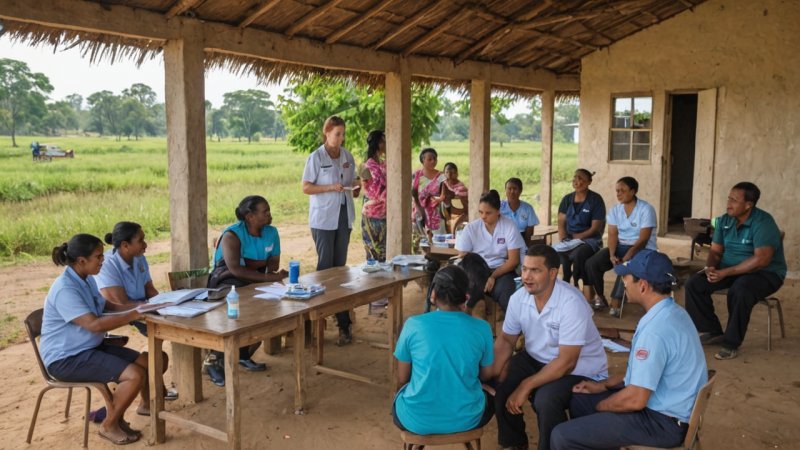Volunteering in global health initiatives is a rewarding way to make a positive impact on communities around the world. Volunteers play a crucial role in providing support, sharing knowledge, and enhancing health outcomes in various regions. Whether you are considering volunteering or simply want to understand its significance, here are some common questions and their answers regarding the role of volunteers in global health initiatives.
What is the role of volunteers in global health initiatives?
Volunteers contribute to global health initiatives in various ways, including providing direct medical care, educating communities about health practices, and assisting with logistical support. They may work alongside healthcare professionals to deliver essential services, conduct health screenings, and raise awareness about diseases.
Why is volunteering important in the health sector?
Volunteering is vital in the health sector as it helps to bridge gaps in healthcare delivery, especially in underserved areas. Volunteers can help extend the reach of healthcare services, provide much-needed manpower, and bring diverse perspectives and skills to health programs, ultimately improving health outcomes for communities.
What skills or qualifications do I need to volunteer in global health initiatives?
While some positions may require specific medical qualifications, many opportunities are available for individuals with diverse skill sets. Essential qualities include adaptability, cultural sensitivity, and a willingness to learn. Volunteers with backgrounds in healthcare, education, public health, or social work may have an edge, but those with strong communication skills and a passion for service are also highly valued.
How can I find volunteer opportunities in global health?
There are many ways to find volunteer opportunities in global health. Start by researching reputable organizations that focus on global health initiatives, such as non-profits and NGOs. Websites like Idealist, VolunteerMatch, or specific health-focused platforms can help you discover openings. Networking with professionals in the field or attending volunteer fairs can also yield valuable leads.
What are some potential challenges I may face while volunteering abroad?
Volunteering abroad can be incredibly rewarding, but it also presents challenges. You may encounter language barriers, cultural differences, and resource limitations. Additionally, working in remote areas may involve adjusting to varying living conditions. Preparing for these challenges through research and training can help ease the transition.
How can I prepare for a volunteer position in global health?
Preparation for a volunteer position in global health involves several steps, including:
- Research: Learn about the region you will be working in, including its health issues and cultural practices.
- Training: Participate in any training offered by your organization, especially in areas like first aid, cultural competency, or language skills.
- Documentation: Ensure you have the necessary visas, vaccinations, and travel insurance.
- Networking: Connect with past volunteers to gain insight into their experiences and tips.
What impact do volunteers have on local communities?
Volunteers can have a transformative impact on local communities by improving health literacy, enhancing access to healthcare, and providing support during health crises. Their presence often fosters trust between local populations and healthcare professionals, leading to more sustainable health practices and improved overall community health.
Can I volunteer remotely in global health initiatives?
Yes, many organizations now offer remote volunteering opportunities in global health. This can include tasks such as data analysis, program development, or educational outreach through online platforms. Remote volunteering allows individuals to contribute to global health initiatives without the need for travel, making it accessible to more people.
What should I consider before committing to a global health volunteer program?
Before committing to a global health volunteer program, consider the following factors:
- Reputation: Research the organization to ensure it has a good track record and ethical practices.
- Commitment: Understand the time commitment and expectations of the program.
- Costs: Be aware of any fees associated with the program, including travel, accommodation, and training costs.
- Impact: Consider how your skills and experiences align with the needs of the community you will be serving.
Volunteering in global health initiatives is a powerful way to contribute positively to the world while gaining invaluable experiences. By understanding the role of volunteers, the challenges they face, and how to prepare, you can embark on a fulfilling journey that enhances both your life and the lives of others.






